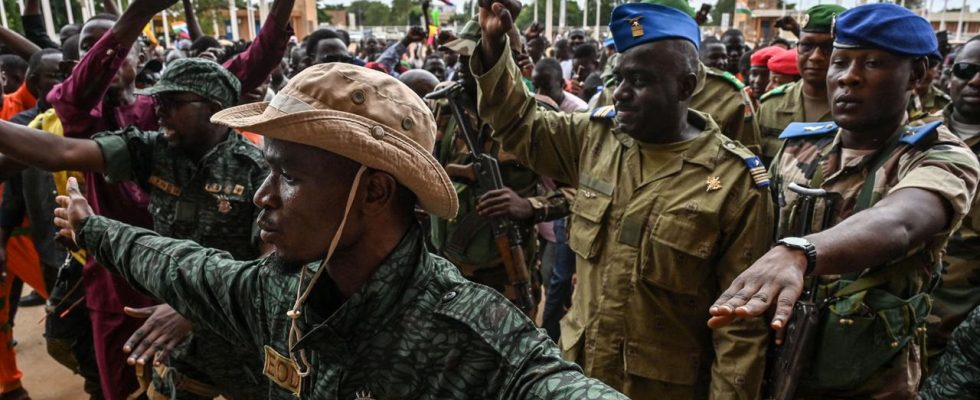In the course of its ultimatum to the putschists in Niger, the West African community of states threatened ECOWAS with violence. Today she wants to discuss how to proceed after the deadline has passed.
Nigerian President Bola Tinubu, current ECOWAS chairman, reacted sharply to the coup in Niger: “We will not allow one coup after the other,” Tinubu announced. This was accompanied by an ultimatum: if the constitutional order in Niger was not restored by last Sunday, ECOWAS could intervene militarily.
However, Tinubu’s announcements sounded very full-bodied. Because in the neighboring countries of Mali and Burkina Faso, the military had already eliminated the civilian governments in the past three years. All appeals and threats of sanctions by the West African economic community ECOWAS had fizzled out without effect.
What’s more, after ECOWAS had threatened violence after the putsch in Niger, the military governments of Mali and Burkina Faso reacted immediately: They would understand an intervention in Niger as a declaration of war against their states.
ECOWAS as a toothless tiger?
Ahead of today’s ECOWAS summit in Nigeria’s capital, Olaf Bernau, an expert on the Sahel region, sees the danger “that ECOWAS has now threatened so severely that it cannot afford to do anything now, because otherwise it would toothless tiger stands there.”
All attempts to persuade the putschists in Niger to reinstate deposed President Bazoum have so far failed. Europeans, including the American government, were unsuccessful. And US Secretary of State Antony Blinken verbally supports ECOWAS’ position – but with a clear emphasis on negotiations:
Clearly, diplomacy is the preferred means of resolving the situation. This is the line of ECOWAS and also ours. Of course we support ECOWAS in restoring constitutional order in Niger.
Experts: military intervention way too risky
That sounds anything but martial and fits the analysis of many experts: a military intervention in Niger would be far too risky. It could finally explode the already tense Sahel region, it is argued. This would also divert military capacities away from the actual enemy – the jihadists who have been destabilizing the region for years.
So what would be a possible solution? Ulf Laessing, who monitors the Sahel states for the CDU-affiliated Konrad Adenauer Foundation in Mali, sees this as an option: “You will have to come to terms with the putschists. Niger is simply too important for that: as a security partner, as a partner in fighting poverty migration.”
Such an arrangement could result in deposed President Bazoum going abroad and Niger’s military rulers promising to allow elections after a relatively short period of time. But whether ECOWAS will come to such a decision today – that is completely open.

